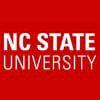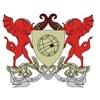The effect of feeding encapsulated butyric acid and zinc on disease signs of turkeys challenged with histomonas meleagridis and coccidia
The objective of this study was to determine if encapsulated butyric acid and zinc (EBZ) could reduce disease signs associated with the protozoan parasite Histomonas meleagridis with or without lesion exacerbation by a coccidia challenge. The experiment was a complete randomized block design using 384 turkeys in battery cages. Birds were assigned to one of six treatments (8 reps/trt; 8 birds/cage): 1- negative control on standard diet, 2- positive control infected with Histomonas while on the standard diet and treatments 3-6 were infected with Histomonas and a commercial turkey coccidia vaccine with the following diets: 3- standard, 4- EBZ (2.5 lbs./ton), 5- EBZ (7.5 lb./ton) and 6- EBZ (15 lb./ton). On day 3 postplacement, poults in treatments 3-6 were given a 10X dose of Immucox® T (CEVA Animal Health, Inc., Cambridge, Ontario, CA) diluted to 1 mL and administered by oral gavage. On day 11, four out of the eight turkeys in treatments 2, 3, 4, 5 and 6 were inoculated in the cloaca with 1 mL of H. meleagridis culture containing 100,000 Histomonas cells/mL. The other birds remained uninoculated, but free to interact with the infected birds to determine lateral transmission. Mortality was recorded daily, and necropsies occurred on all poults that succumbed to the disease prior to trial termination to determine cecal and liver lesions. The experiment was terminated when poults reached 32 days of age and the ceca and liver from each bird was scored for blackhead disease (0: no lesions to 4: severe lesions) to evaluate for infection rate and gut health status. Statistical analyses were performed using JMP® (SAS Institute, Cary, NC) software using the GLM procedure and means were separated using Tukey HSD with significance considered if P≤0.05. Treatment 4 led to a significant decrease in direct infection rates compared to treatments 2 and 3 (P<0.05). This treatment also had significantly lower cecal lesion scores when compared to treatment 3 (P<0.05) with similar liver lesion scores to treatment 1. No significant differences were seen in lateral transmission between treatments. EBZ at 7.5 lb./ton significantly reduced direct infection rates and cecal lesion scores for poults challenged with Histomonas and multiple coccidia species.
Key Words: butyric acid, zinc, Histomonas, coccidia, turkeys.
Abstract presented at the International Poultry Scientific Forum during IPPE 2020.
























